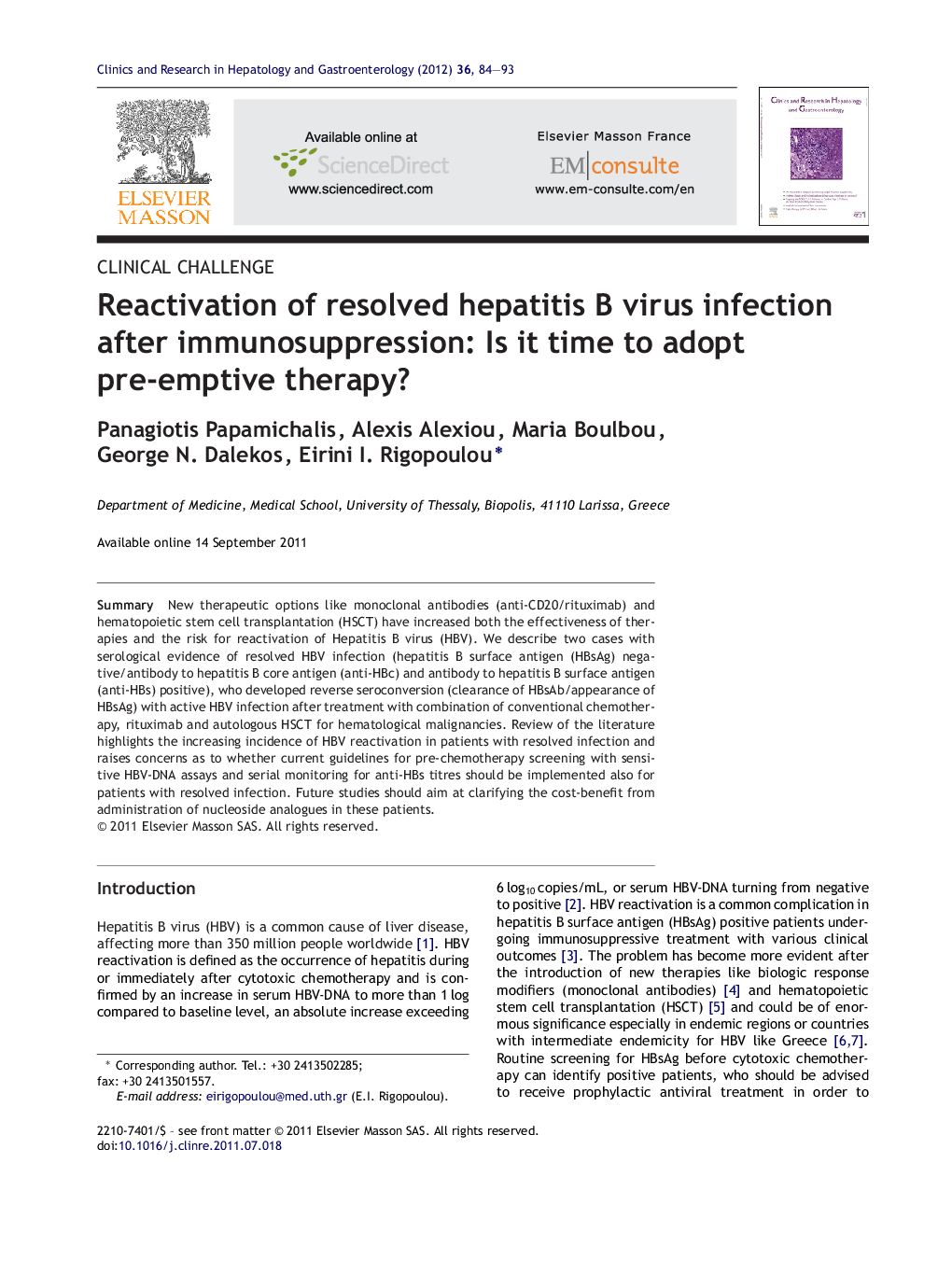| Article ID | Journal | Published Year | Pages | File Type |
|---|---|---|---|---|
| 3286798 | Clinics and Research in Hepatology and Gastroenterology | 2012 | 10 Pages |
SummaryNew therapeutic options like monoclonal antibodies (anti-CD20/rituximab) and hematopoietic stem cell transplantation (HSCT) have increased both the effectiveness of therapies and the risk for reactivation of Hepatitis B virus (HBV). We describe two cases with serological evidence of resolved HBV infection (hepatitis B surface antigen (HBsAg) negative/antibody to hepatitis B core antigen (anti-HBc) and antibody to hepatitis B surface antigen (anti-HBs) positive), who developed reverse seroconversion (clearance of HBsAb/appearance of HBsAg) with active HBV infection after treatment with combination of conventional chemotherapy, rituximab and autologous HSCT for hematological malignancies. Review of the literature highlights the increasing incidence of HBV reactivation in patients with resolved infection and raises concerns as to whether current guidelines for pre-chemotherapy screening with sensitive HBV-DNA assays and serial monitoring for anti-HBs titres should be implemented also for patients with resolved infection. Future studies should aim at clarifying the cost-benefit from administration of nucleoside analogues in these patients.
